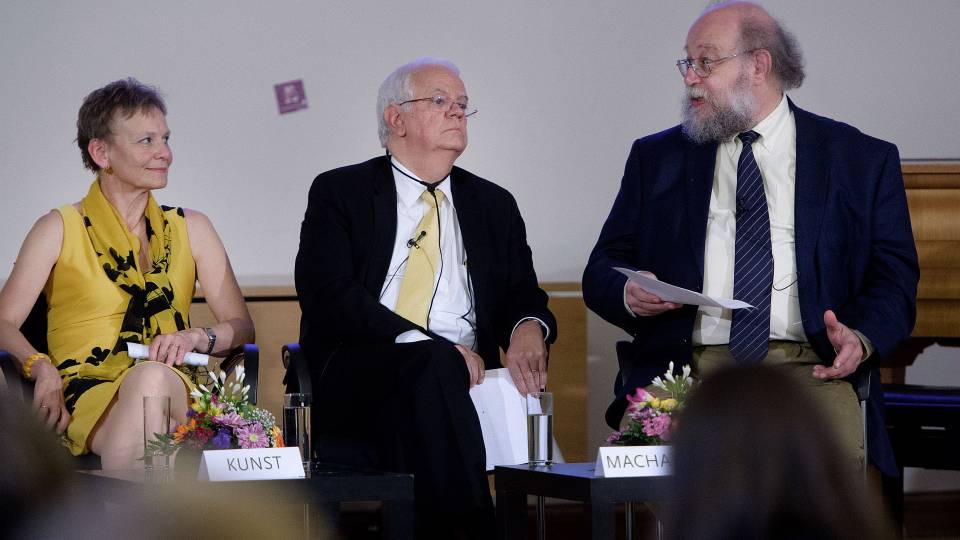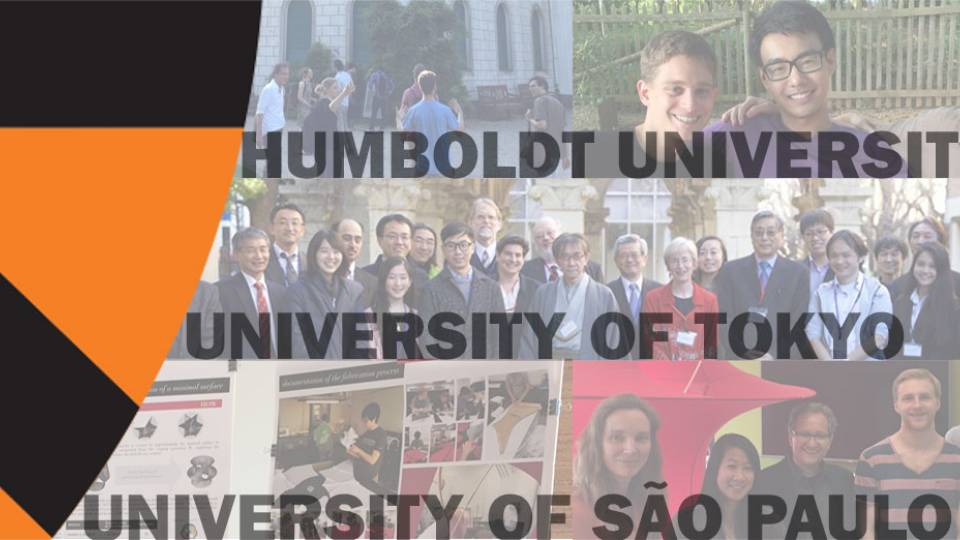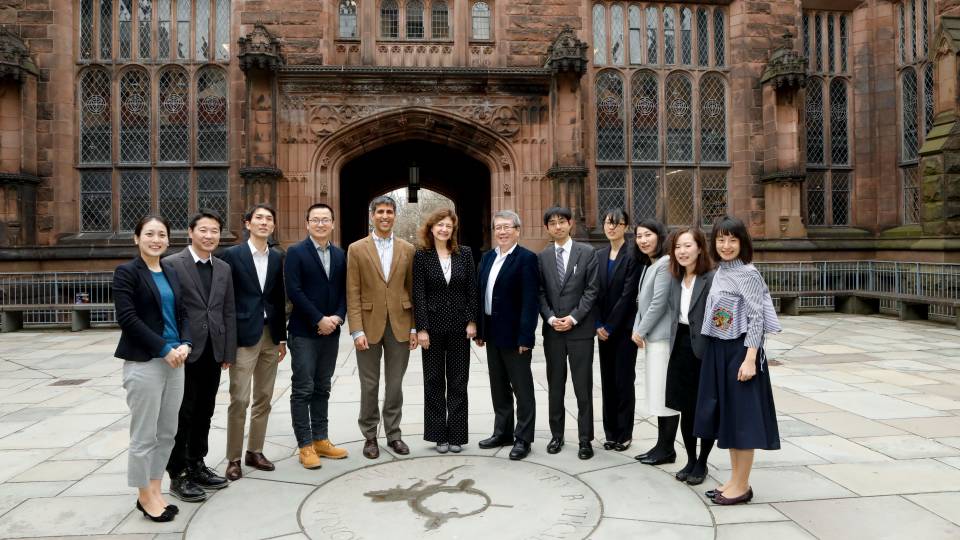Princeton University has established a strategic partnership with Humboldt University in Berlin that will support research and teaching collaboration spanning the disciplines.
The agreement is a further example of Princeton's internationalization efforts, outlined in the 2007 "Princeton in the World" report. In November, Princeton signed a strategic partnership with the University of São Paulo in Brazil. Such agreements expand upon the many institutional partnerships already in place including faculty fellowships, student exchanges and study abroad programs.
Jeremy Adelman, director of Princeton's Council for International Teaching and Research, said: "Bringing Princeton and Humboldt together will create opportunities to fund faculty initiatives for research and teaching collaboration that will sustain undergraduate, graduate student and faculty exchanges across the two institutions and involving all disciplines." He noted that the fund will be approximately half a million dollars for the launch year.
An international memorandum of understanding governs the strategic partnership with Humboldt, and a joint governing committee comprised of faculty and senior staff from both institutions will seek out and review project proposals. The proposals must be reciprocal academically and geographically, with academic units from both universities participating and a flow of people to both countries.
Individual faculty initiatives will be the driving force behind the development of projects.
"In considering whether to enter strategic partnerships with international universities we use a 'bottom-up' approach," said Humboldt President Jan-Hendrik Olbertz in announcing the collaboration in Berlin.
"Only when we can identify opportunities for outstanding, across-the-board disciplinary cooperation between researchers at our university and colleagues of a foreign institution can our leadership actively support intensified collaboration within the framework of a strategic partnership," he said.
Adelman, who is also the Walter Samuel Carpenter III Professor in Spanish Civilization and Culture, said the agreement solidifies "strong existing interests" in Humboldt and in Berlin due to the prestige of the university and its prominent place in German higher education, as well as the importance of the city. "A lot of people want to go to Berlin," he said.
Strong ties already exist between Princeton and Humboldt in the humanities —including the launch of a dual Ph.D. program in the humanities in May — and physical and materials sciences.
"The partnership with Humboldt University will have an immediate impact on a number of departments at Princeton," said Michael Jennings, the Class of 1900 Professor of Modern Languages and professor of German. "German, philosophy and the history of science are already involved in cooperative endeavors, including not just faculty and student exchange, but collaborative research and publication projects. The strategic partnership will now provide a fuller range of departments with a structural framework and funding incentives to broaden our cooperation with one of the leading European universities."
From the vantage point of the German department, Jennings said it already enjoys firm links to Humboldt. It is a charter member of the Ph.D. Network Literature and Knowledge, which offers graduate study opportunities between Princeton and Humboldt as well as Harvard University and the University of California-Berkeley. Currently, the German department has two students studying at Humboldt, and four students from the German institution are at Princeton. The department also includes Professor Joseph Vogl, who teaches both at Humboldt and at Princeton, and is, said Jennings, "one of the cornerstones of the broader Princeton-Humboldt cooperation."
A.J. Stewart Smith, dean for research and the Class of 1909 Professor of Physics, pointed to shared work in condensed-matter and polymer science and long-term cooperation among mathematical physicists. "We are delighted to partner with Humboldt, an institution that shares Princeton's research strengths broadly and where we already enjoy strong collaborations in the physical and materials sciences," he said.
Added Smith: "I look forward with enthusiasm to expanding faculty and student exchanges in these fields, and to creating new opportunities for world-class research in areas of high priority to both institutions. Obvious fields like neuroscience come to mind, but the successful activities will ultimately originate 'bottom-up.' It's then our job to nurture them so they can grow and thrive."
Daniel Garber, the Stuart Professor of Philosophy, said the partnership "comes at a good time" in building upon existing initiatives. These include a working group on ancient philosophy, a summer seminar for undergraduates studying German philosophy, ongoing graduate student collaborations and workshops, and faculty exchanges. One of the current Global Scholars at Princeton, Dominik Perler, is a philosophy professor from Humboldt who will visit campus at intervals over a three-year span hosted by the Department of Philosophy.
"The strategic partnership with Humboldt University will allow us to take the relationships we already have to the next level, and encourage further exchanges of faculty and students," said Garber.
For all scholars, and especially those immersed in cross-cultural work, the partnership also is expected to open doors, said Leonard Barkan, the Class of 1943 University Professor of Comparative Literature and chair of the department.
"Humboldt University is particularly appropriate for this partnership because it is both intellectually and geographically cosmopolitan; and with its strong interest in interdisciplinary and multidisciplinary studies, it dovetails beautifully with what many of us think is so distinctive in the work we do at Princeton," Barkan said.


